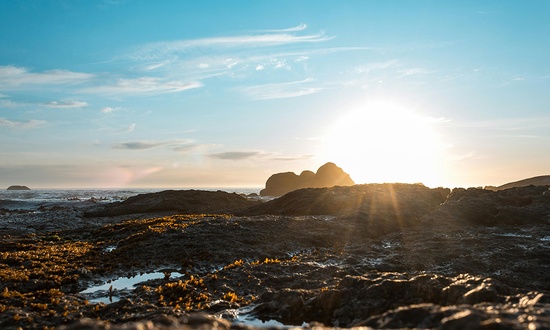You will be you in Heaven. Who else would you be? If Bob, a man on Earth, is no longer Bob when he gets to Heaven, then, in fact, Bob did not go to Heaven. If when I arrive in Heaven I’m not the same person with the same identity, history, and memory, then I didn’t go to Heaven.
The resurrected Jesus did not become someone else; He remained who He was before His resurrection: “It is I myself!” (Luke 24:39). In John’s Gospel, Jesus deals with Mary, Thomas, and Peter in very personal ways, drawing on His previous knowledge of them (John 20:10-18, 24-29; 21:15-22). His knowledge and relationships from His pre-resurrected state carried over. When Thomas said, “My Lord and my God,” he knew he was speaking to the same Jesus he’d followed. When John said, “It is the Lord,” he meant, “It’s really him—the Jesus we have known” (John 21:4-7).
If we weren’t ourselves in the afterlife, then we couldn’t be held accountable for what we did in this life. The Judgment would be meaningless. If Barbara is no longer Barbara, she can’t be rewarded or held accountable for anything Barbara did. She’d have to say, “But that wasn’t me.” The doctrines of judgment and eternal rewards depend on people’s retaining their distinct identities from this life to the next.
Bruce Milne writes, “We can banish all fear of being absorbed into the ‘All’ which Buddhism holds before us, or reincarnated in some other life form as in the post-mortem prospect of Hinduism. . . . The self with which we were endowed by the Creator is his gift of life to us, the self whose worth was secured forever in the self-substitution of God for us on the cross, that self will endure into eternity. Death cannot destroy us.”[i]
Some people read “you may participate in the divine nature” (2 Peter 1:4) and imagine that we will all become indistinguishable from God. But to imagine we’ll lose our personal identities is a Hindu belief, not a Christian one. The verse in 2 Peter means that we’re covered with Christ’s righteousness. We’ll participate in God’s holiness yet fully retain our God-crafted individuality.
Our own personal history and identity will endure from one Earth to the next. “‘As the new heavens and the new earth that I make will endure before me,’ declares the Lord, ‘so will your name and descendants endure’ ” (Isaiah 66:22). Jesus said to His disciples, “I will not drink of this fruit of the vine from now on until that day when I drink it anew with you in my Father’s kingdom” (Matthew 26:29, emphasis added). The same Jesus will drink the same wine with the same disciples. It isn’t that what used to be us will commune with what used to be Abraham, Isaac, and Jacob. Rather, we, the same people but fully cleansed, will eat at a table with the one and only Abraham, Isaac, and Jacob (Matthew 8:11).
In Heaven will we be called by our present names? The names of God’s children are written in the Lamb’s Book of Life (Revelation 20:15;21:27). I believe those are our earthly names. God recognized as valid the names Adam gave the animals. God calls people by their earthly names, the names given by their parents. He calls people in Heaven by those same names—Abraham, Isaac, and Jacob, for instance. The names of the twelve sons of Israel and of the apostles, apparently the same names we know them by, are written on the city’s gates and the foundations of its walls (Revelation 21:12-14). Our names reflect our individuality. To have the same name written in Heaven that was ours on Earth speaks of the continuity between this life and the next.
In addition to our earthly names, we’ll receive new names in Heaven (Isaiah 62:2; 65:15; Revelation 2:17; 3:12). New names don’t invalidate the old ones. Many people had multiple names in Scripture: Jacob is also Israel; Simon is also Peter; Saul is also Paul.
Imagine a beautiful rose garden. It’s been perfectly designed and cultivated. But the rose bushes become diseased. The garden becomes a tangled mass. It’s a sad, deteriorated remnant of the glorious garden it once was. Then the gardener determines to reclaim his garden. Day after day he prunes, waters, and fertilizes each bush. His desire isn’t simply to restore the garden to its original beauty; it’s to make it far more beautiful than ever.
When the gardener is done and the roses are thriving, beautiful, and fragrant, is the rose garden the same as it was? Is each individual rose the same? Yes and no. It’s the same rose garden, restored to its previous beauty and beyond. Yet to look at it, it’s hard to believe these are the same roses that were once a withered, tangled mess.
This is a picture of Creation, Fall, and Resurrection. When God is finished, we’ll be ourselves without the sin—meaning that we’ll be the best we can be.
For more answers to questions about eternity, see Randy's book Everything You Always Wanted to Know About Heaven as well as his comprehensive book Heaven and devotional 50 Days of Heaven.
[i] Bruce Milne, The Message of Heaven and Hell (Downers Grove,Ill.: InterVarsity, 2002), 194.
Photo: Pixabay




